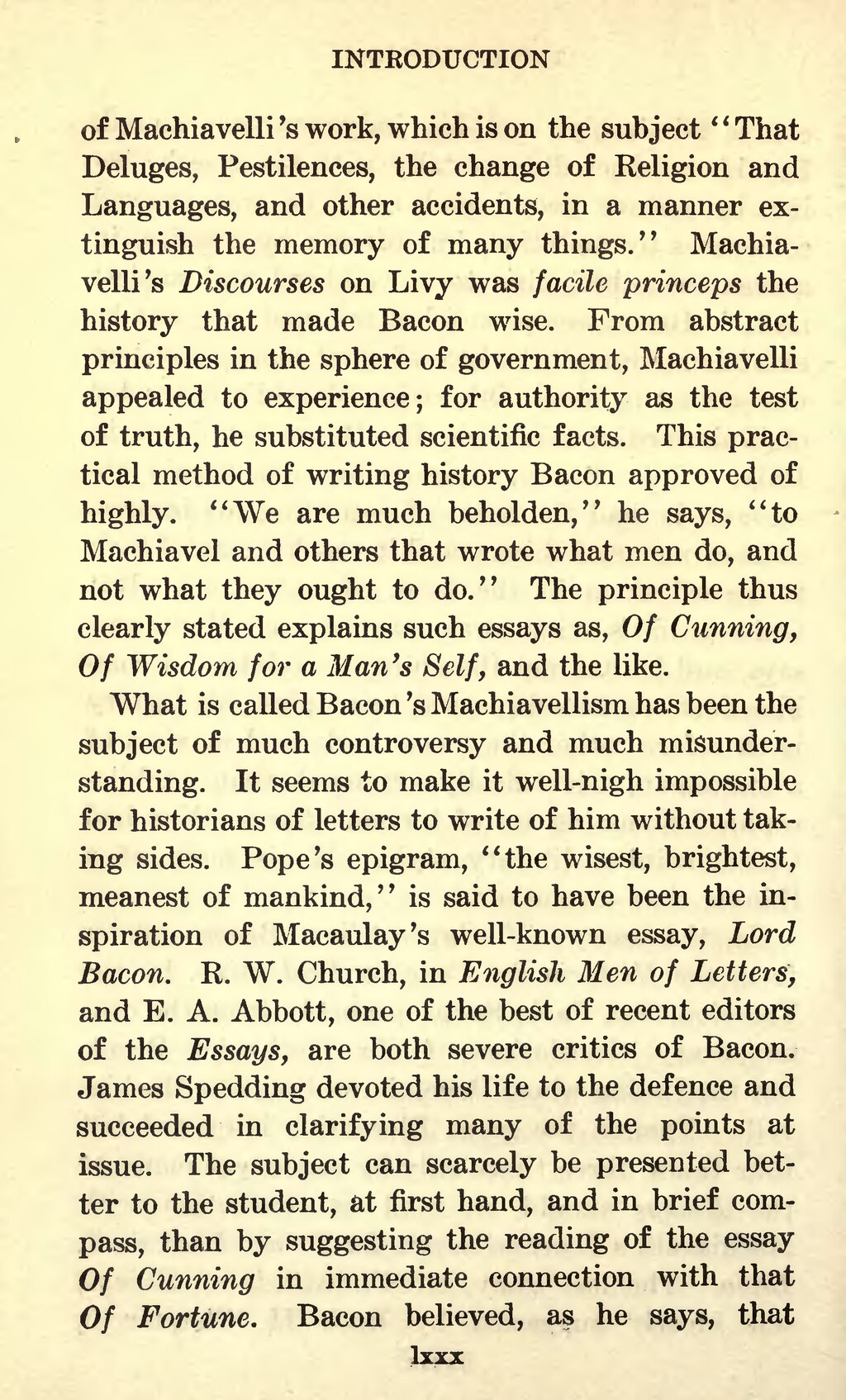of Machiavelli's work, which is on the subject "That Deluges, Pestilences, the change of Religion and Languages, and other accidents, in a manner extinguish the memory of many things." Machiavelli's Discourses on Livy was facile princeps the history that made Bacon wise. From abstract principles in the sphere of government, Machiavelli appealed to experience; for authority as the test of truth, he substituted scientific facts. This practical method of writing history Bacon approved of highly. "We are much beholden," he says, "to Machiavel and others that wrote what men do, and not what they ought to do." The principle thus clearly stated explains such essays as, Of Cunning, Of Wisdom for a Man's Self, and the like.
What is called Bacon's Machiavellism has been the subject of much controversy and much misunderstanding. It seems to make it well-nigh impossible for historians of letters to write of him without taking sides. Pope's epigram, "the wisest, brightest, meanest of mankind," is said to have been the inspiration of Macaulay's well-known essay, Lord Bacon. R. W. Church, in English Men of Letters, and E. A. Abbott, one of the best of recent editors of the Essays, are both severe critics of Bacon. James Spedding devoted his life to the defence and succeeded in clarifying many of the points at issue. The subject can scarcely be presented better to the student, at first hand, and in brief compass, than by suggesting the reading of the essay Of Cunning in immediate connection with that Of Fortune. Bacon believed, as he says, that
